How South Sudan's Conflict Is Really Affecting The Women And Girls Who Live There
The conflict in South Sudan has forced more than a million people out of their homes. Tom Perry, from CARE International, shares a heartbreaking story which is all too common in the African country as fighting enters its second year.
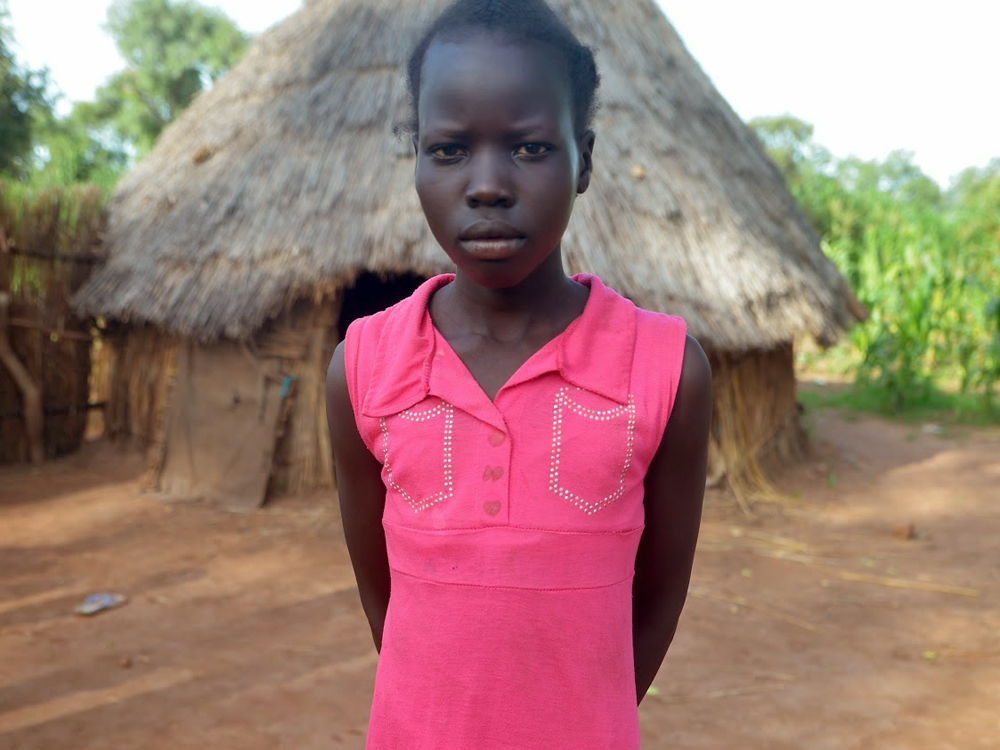
The conflict in South Sudan has forced more than a million people out of their homes. Tom Perry, from CARE International, shares a heartbreaking story which is all too common in the African country as fighting enters its second year.
Photo credit: © CARE/ Tom Perry
My name is Nyabel. I am only 15 years-old but as the oldest of seven siblings, I have to take care of the rest of my family. Less than one year ago, I was in year 10 at my school in Bongki. Life was quite normal, I was doing well in my studies, particularly English and Arabic.
When fighting erupted across South Sudan in December, my parents thought our town would be ok. It wasn’t. A few days before Christmas, it was attacked by soldiers.
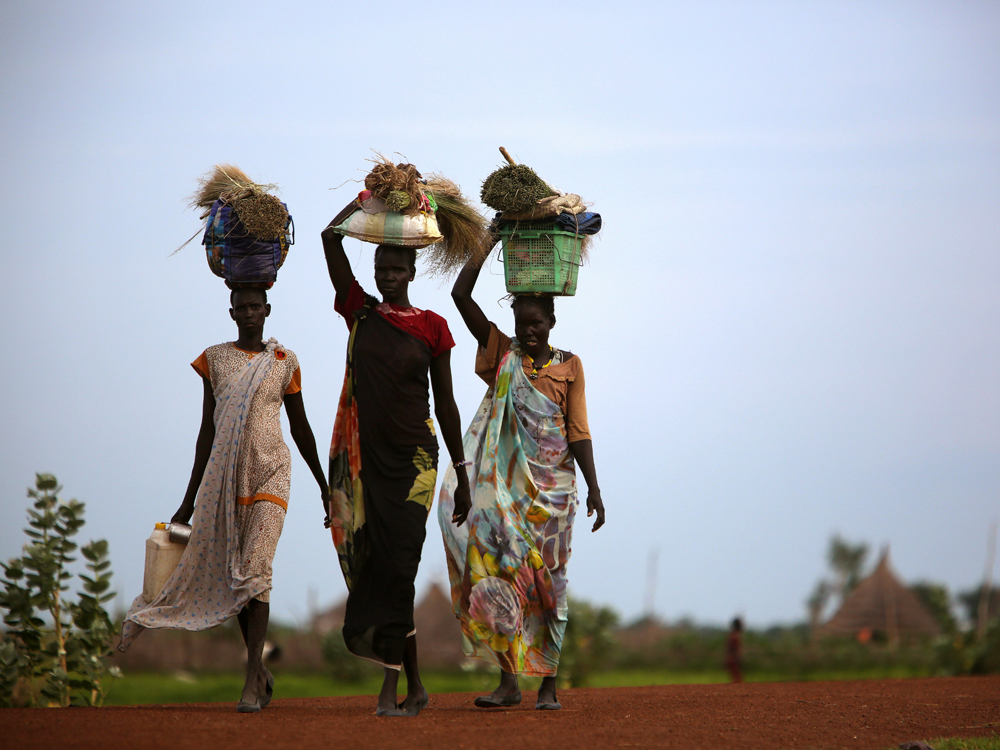
Photo credit: © CARE/ Josh Estey
Hundreds of men, women and children in my village were killed. Cattle, goats and other animals were rounded up and butchered, homes were torched to the ground. My poor mother – who just days earlier had given birth to a young baby boy, Wal* – saw my aunt and uncle both shot dead.
Petrified, my family and I ran. We ran straight to the bush, aiming for the town of Panyang. We walked carefully all night, terrified of being seen by soldiers.
Marie Claire Newsletter
Celebrity news, beauty, fashion advice, and fascinating features, delivered straight to your inbox!
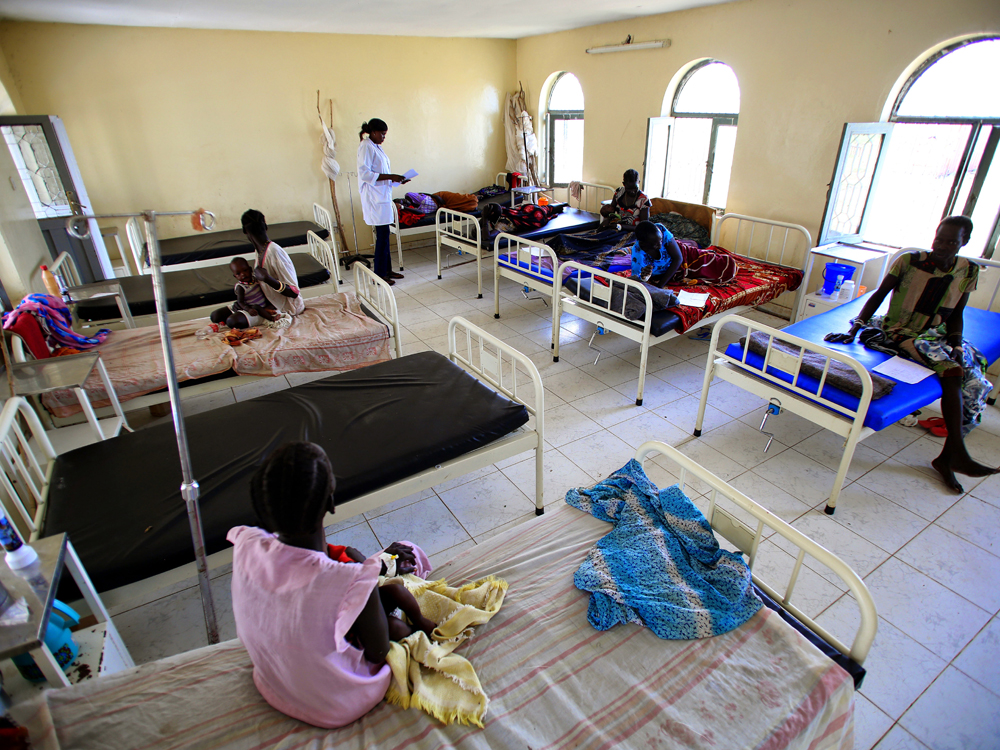
© CARE/ Josh Estey
We could hear the sounds of bombs and gunfire and just had to keep moving. There was no one directing us, we just knew the direction we had to go. We hoped that, if we reached Panyang, we would be safe.
By morning, we got there and rested under a group of trees on the outskirts of the town. While we were resting, my father explained to us that he needed to return to Bonki, to defend our hometown. We were terrified of what could happen to him, after all we had been through. It was a very painful goodbye.
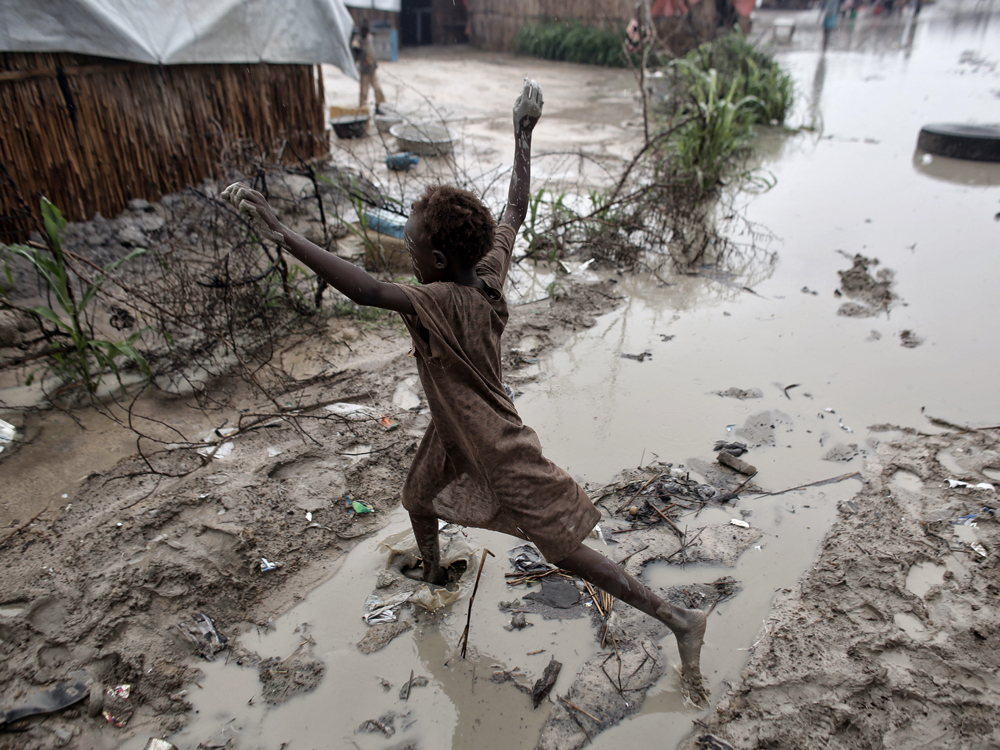
© CARE/ Josh Estey
Our rest did not last long. Within a few hours, fighting arrived in Panyang too. Guns were fired, shelling began and many more were killed. I heard that the CARE-run hospital in the town was inundated, with staff treating more than 200 patients with gunshot wounds in a single day.
So we had to keep moving, walking through thick bush all night. I didn’t have any shoes and my feet were cut and badly swollen. But because my father had left and my mother was nursing days-old baby Wal, I had to lead my frightened younger brothers and sisters through the bush.
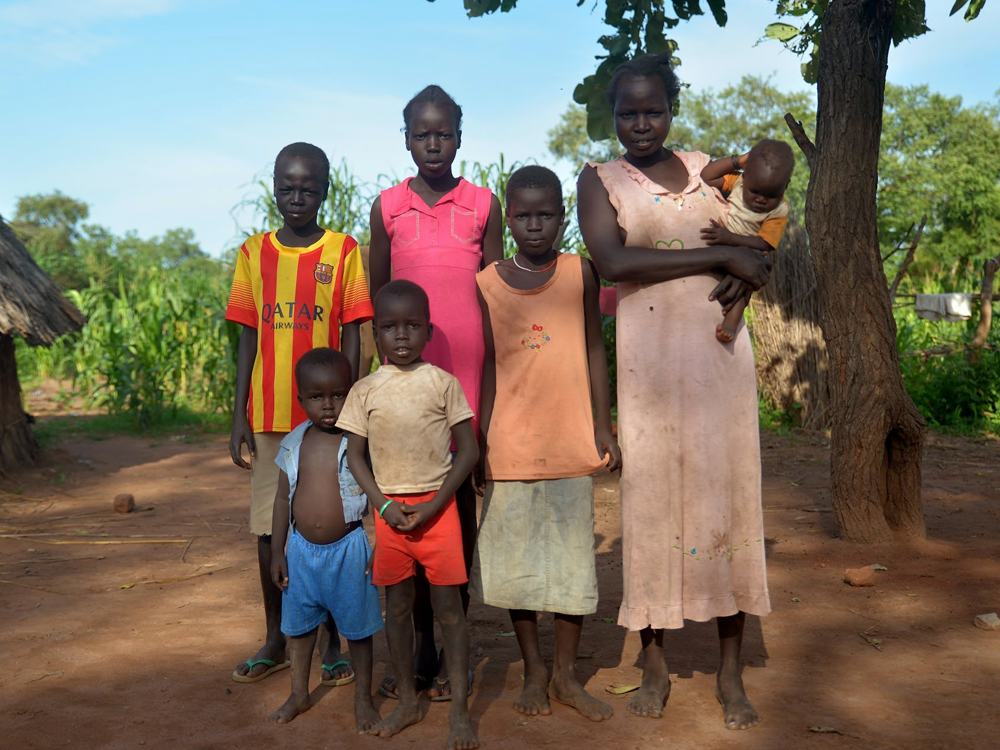
© CARE/ Tom Perry
Many strangers who were also fleeing the attack asked to drink from the eight-litre jerrycan that I had been carrying. Within half a day, their water was finished. Once the water was gone, we suffered. But the situation just forces you to move. You just have to, even if you are tired.
Some three days later, exhausted and overwhelmed, we reached the outskirts of Yida. My baby brother Wal was now very ill. My mother and I took him to a temporary hospital for urgent treatment. He spent the next five months there.
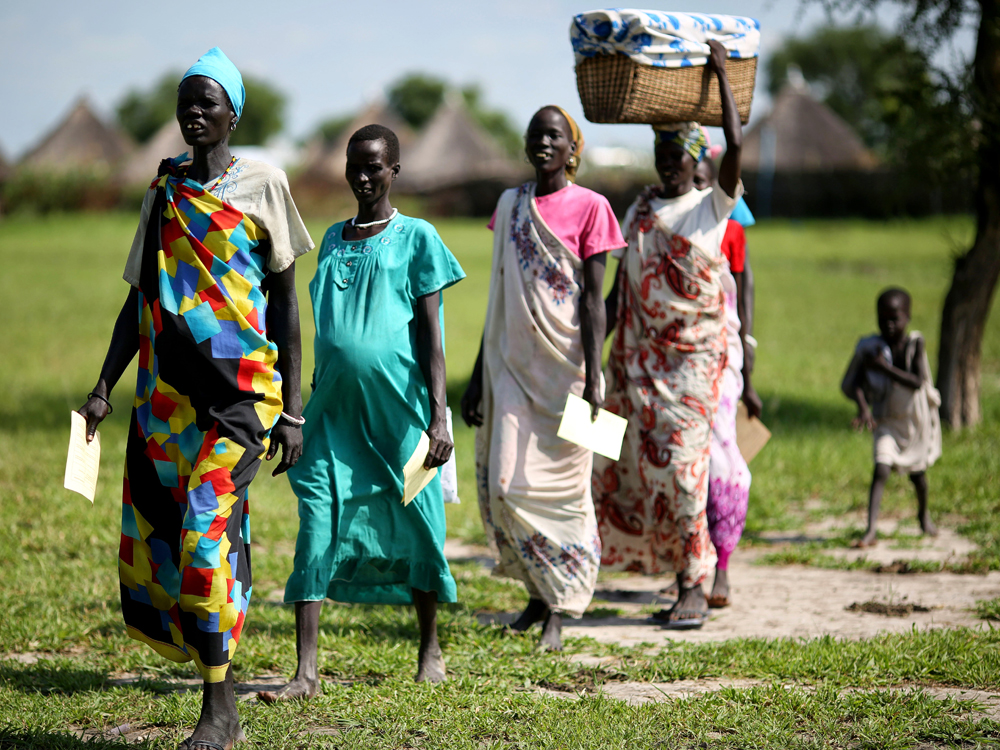
© CARE/ Josh Estey
After a few days, we managed to find a family friend, who gave us some space on the floor of his small house. Several weeks later, my father miraculously arrived in Yida and we were reunited again. He had, however, lost one leg in an attack.
Eight months on, we now have a new threat: hunger. My siblings and I go every day to the bush to pick vegetables and edible plants. We live on one simple meal per day of paper food; a paste of mill flour and water.
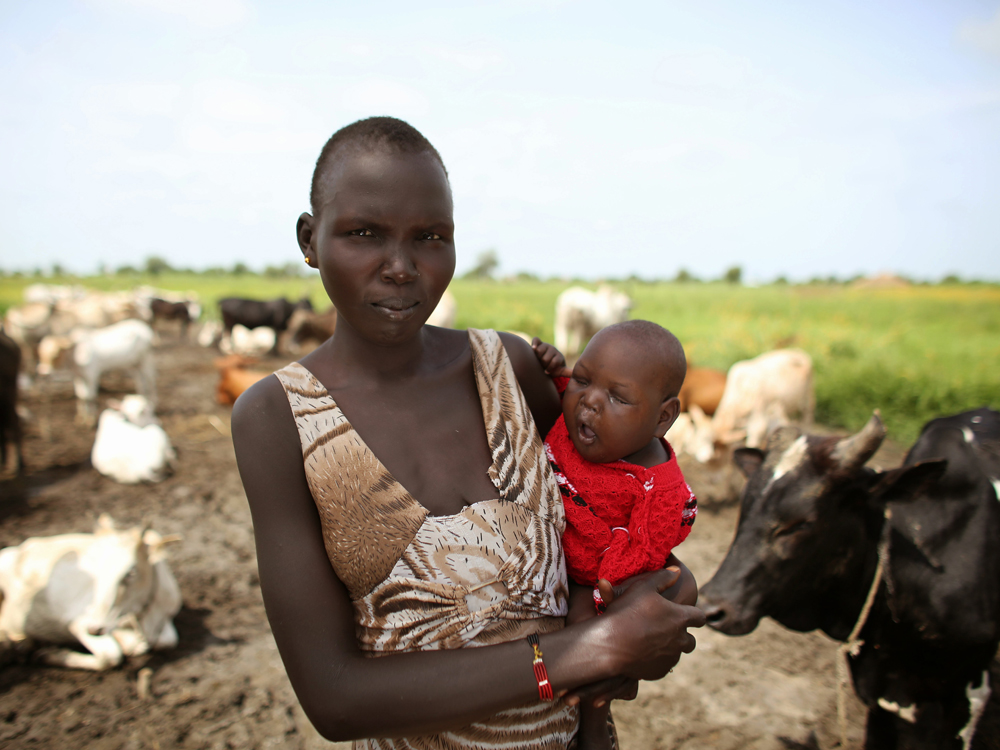
© CARE/ Josh Estey
My mother tells me that without a house, food or crops, we are now dependent on others for basic survival. The land is not ours, we are entirely dependent on other people - the kindness of strangers. We cannot be shy or afraid to ask for help; we have to. And when we’ve begged, if someone has one or two dollars, they have helped us. Our life has become focused on basic survival.
Despite all we’ve been through to get here, we’re still suffering. We still don’t have basic things like shelter and food. I really feel sad about what’s happened to my life. I was going to school, I was in year 10. Now I’ve lost this year without any study. And, worse, we have nothing to eat. I’m just hoping for peace, so that we can get the possibility of going to school, for a better future.
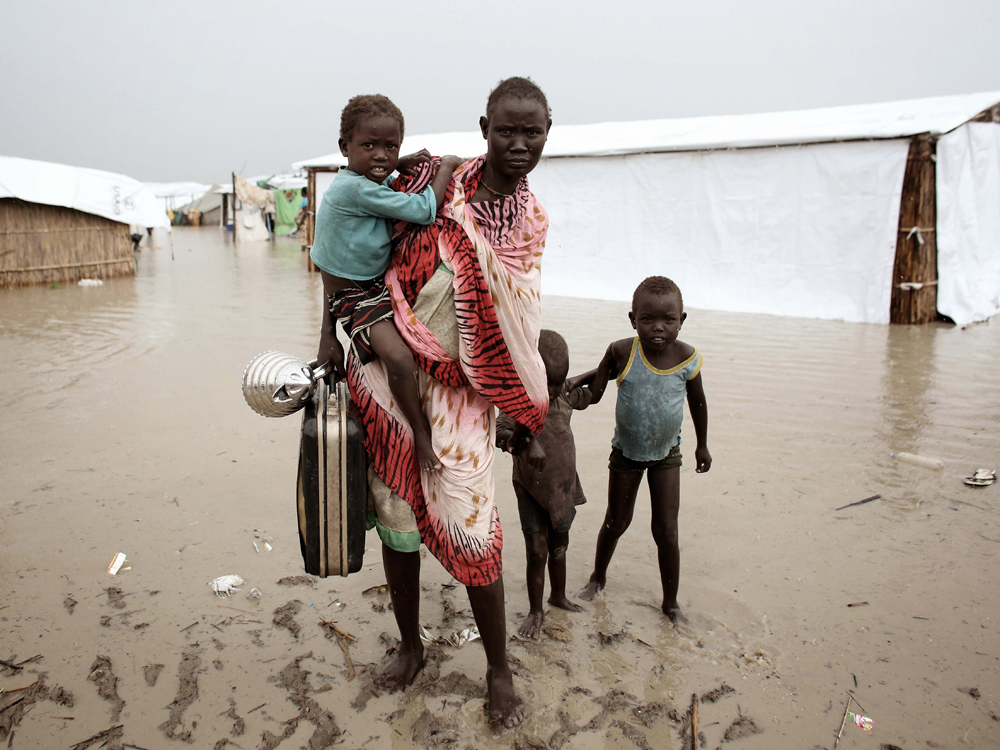
© CARE/ Josh Estey
CARE has supported Nyabel and her family with seeds and tools to grow food for the coming months, but more support is desperately needed. Nyabel’s story is far from unique. An estimated 1.5 million South Sudanese have fled their homes since war broke out across the country in December, including more than 400,000 who have fled to neighbouring Ethiopia, Kenya, Sudan and Uganda. The massive displacement, insecurity and conflict has the potential to lead to a famine affecting up to 3.9 million people. There are already more than 900,000 malnourished children in South Sudan who could die without any support.
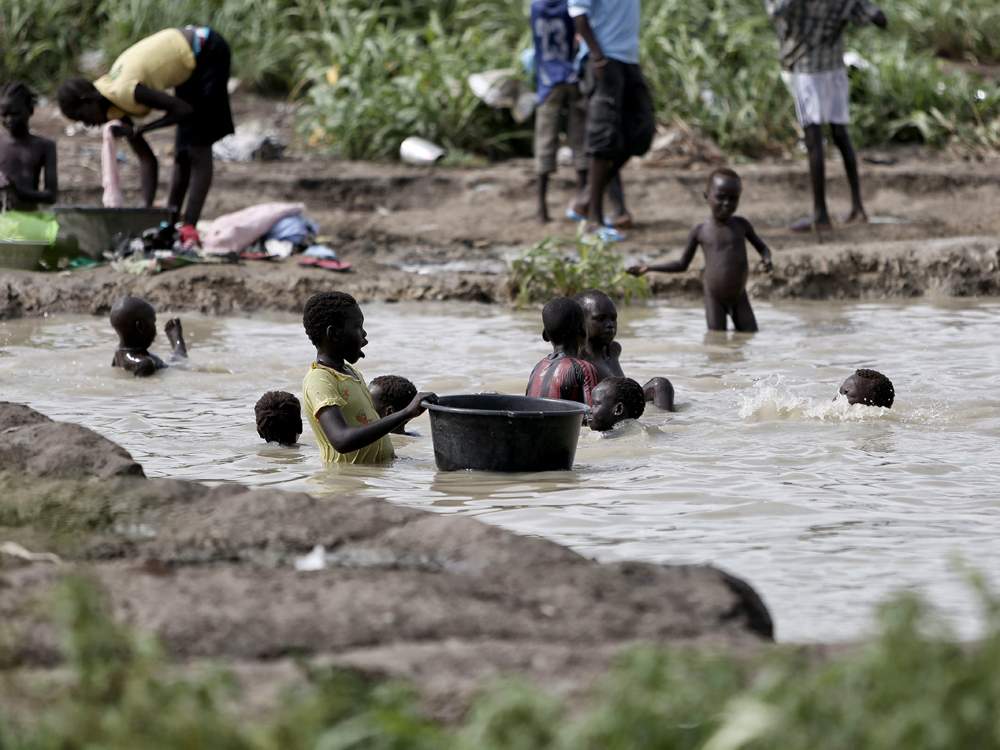
CARE International is providing medical support, supplementary feeding for malnourished children, sanitary services, seeds and other relief supplies to families across South Sudan’s hardest hit states of Unity, Upper Nile and Jonglei. Visit careinternational.org.uk to learn more and donate.
* CARE is committed to being a child safe organisation. Names of children have been changed.
The leading destination for fashion, beauty, shopping and finger-on-the-pulse views on the latest issues. Marie Claire's travel content helps you delight in discovering new destinations around the globe, offering a unique – and sometimes unchartered – travel experience. From new hotel openings to the destinations tipped to take over our travel calendars, this iconic name has it covered.
-
 How are Trump’s tariffs affecting the fashion industry?
How are Trump’s tariffs affecting the fashion industry?The fluctuating situation in the US is having very real consequences
By Rebecca Jane Hill
-
 Here's every character returning for You season 5 - and what it might mean for Joe Goldberg's ending
Here's every character returning for You season 5 - and what it might mean for Joe Goldberg's endingBy Iris Goldsztajn
-
 Celine's new Selfridges pop-up is an ode to summers on the French Riviera
Celine's new Selfridges pop-up is an ode to summers on the French RivieraA one-stop-shop for the ultimate holiday wardrobe
By Clementina Jackson